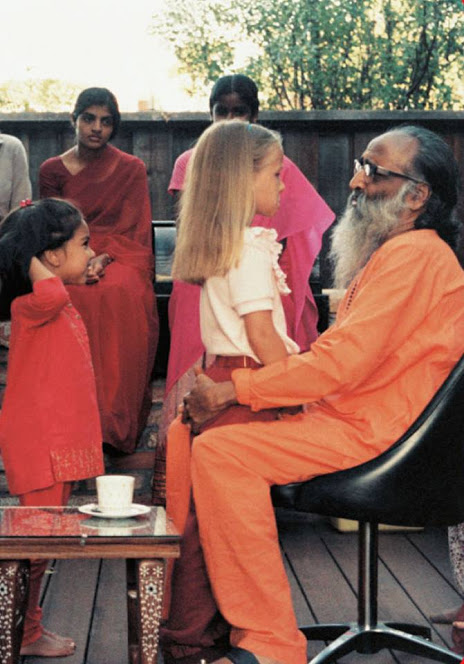Srimad Bhagavad-Gita : Chapter-14, Slokam - 23.
=============================================================
==========================================================
Sunday, June 07, 2020.
Srimad Bhagavad-Gita :
Chapter-14. ( GUNA-TRAYA-VIBHAGA-YOGAM )
Slokam-23.
--------------------------------------------------------------------------------
Slokam-23.
"Udasinavadasinah gunair yo na vicalyate,
guna varttanta ityeva yovatishtati nengate."
----------------------------------------------------------------
Translation :
yah = who;
udasinavat asinah = by the reason of sitting carelessly/lazily;
gunaih = in the sattva, rajo, tamo guna-s;
na vicalyate = not disturbed and confused;
gunah eva = guna-s functions and show their qualities;
varttante iti = ( otherwise I am not doing anything ) with this consciousness;
yah avatishttathi = one who with balanced mind;
na ingate = unshaken /undisturbed;
( sah gunatitah ) = he is said to be the 'Gunatithan.'
--------------------------------------------------------------------------
The Tattvam of Slokam :
( Here Lord explains in detail about the behaviour ( acharam ) of 'Gunatithan.' )
-----------------------------------------------------------------------
Discourse :
1.
The primary chracteristics is an enlightened being is equipoise in all situations. Such a one has no desires so nothing can disturb them. If adversity comes one is not alarmed and if prosperity comes one is not elated. One remains balanced in all situations. In the Ballaveya section of the Sama Veda it is stated:One who transcends the three gunas or modes of material nature is neither attracted, attached , repulsed or antagonised.
If some subtle qualities of sattva guna or the mode of goodness were to enter the consciousness in connection with the Supreme Lord Krishna then they would be accepted. But if subtle qualities of raja guna or the mode of passion and tama guna or the mode of ignorance were to appear they would be rejected immeadiately.
The Moksha Dharma known as the Mahabharata confirms that neither the demigods nor the enlightened one's being established in sattva guna can ever be without the subtle attributes of sattva thus they are firm in their convictions. One who is not steadfast in their convictions can never achieve moksa or liberation from material existence and attain the Supreme Lord.
The person who is fixed within in sattva guna soon becomes perfected and is assured all success.
----------------------------------------------------------------------------------
2.
To whom pleasure and pain are non-different to the jiva who is thus situated abiding in the atma in one's eternal nature. To such a jiva aclod of earth, a precious stone and a nugget of gold are all simply manifestations of prakriti or the material substratum pervading physical existence and are all of equal worth.
Also to whom agreeable and disagreeable things which are the causes of pleasure and pain are seen as the same by one of calm and steady intellect who is also indifferent to the bestowal of both praise and ridicule. Equiposed in honor or dishonor, equal towards friend or foe alike.
Who is habituated to renouncing the rewards of all actions producing visible or invisible results to bhakti or exclusive loving devotional service to the Supreme Lord Krishna or any of His authorised avatara's or incarnations as verified in Vedic scriptures.
Such a jiva is known to have transcended the three gunas.
----------------------------------------------------------------------------
To be continued .....
============================================================






Comments
Post a Comment